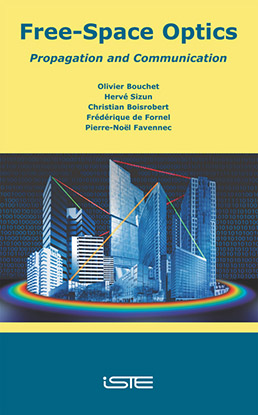
Free-space optics is a telecommunications technique which is already being used for everyday exchange of information and has many advantages over other techniques (bandwidth, low cost, mobility of the equipment, security, etc.); within the next decade, it is likely to become an integral and essential part of data-processing architectures and telecommunications.
A history of wireless optical telecommunications is given, together with a recapitulation of the application of the principles of electromagnetism to free-space optics. Coverage is also given to the transmitters and receivers of optical beams, which are the basis of any optical communication system. These devices were responsible for the first truly significant advances in the performance of these systems. Special attention is given to the problems associated with the propagation of photons, both in the presence and absence of obstacles, since these are key issues in gaining an understanding of future telecommunication systems based on wireless optics. Finally, the authors consider standards, as well as safety and confidentiality issues.
1. History of Optical Telecommunications.
2. Basic Principles of Electromagnetism.
3. Emission and Reception of Optical Beams.
4. Line of Sight Propagation.
5. Propagation of an Optical Beam in Confined Space.
6. Optical Communication.
7. Safety and Confidentiality.
Olivier Bouchet works in the field of free-space optics at France Telecom Research & Development.
Hervé Sizun is a specialist of the electromagnetic wave propagation at France Telecom.
Christian Boisrobert is one of the designers of the first digital link using optical fibres in France at France Telecom. He is a Professor at the University of Nantes.
Frédérique de Fornel is the Director of Research at CNRS and is Head of the Near Field Optics Group at the University of Bourgogne.
Pierre-Noël Favennec works as a consultant engineer and is the author of numerous scientific books and papers. He is also the Chairman of URSI France.